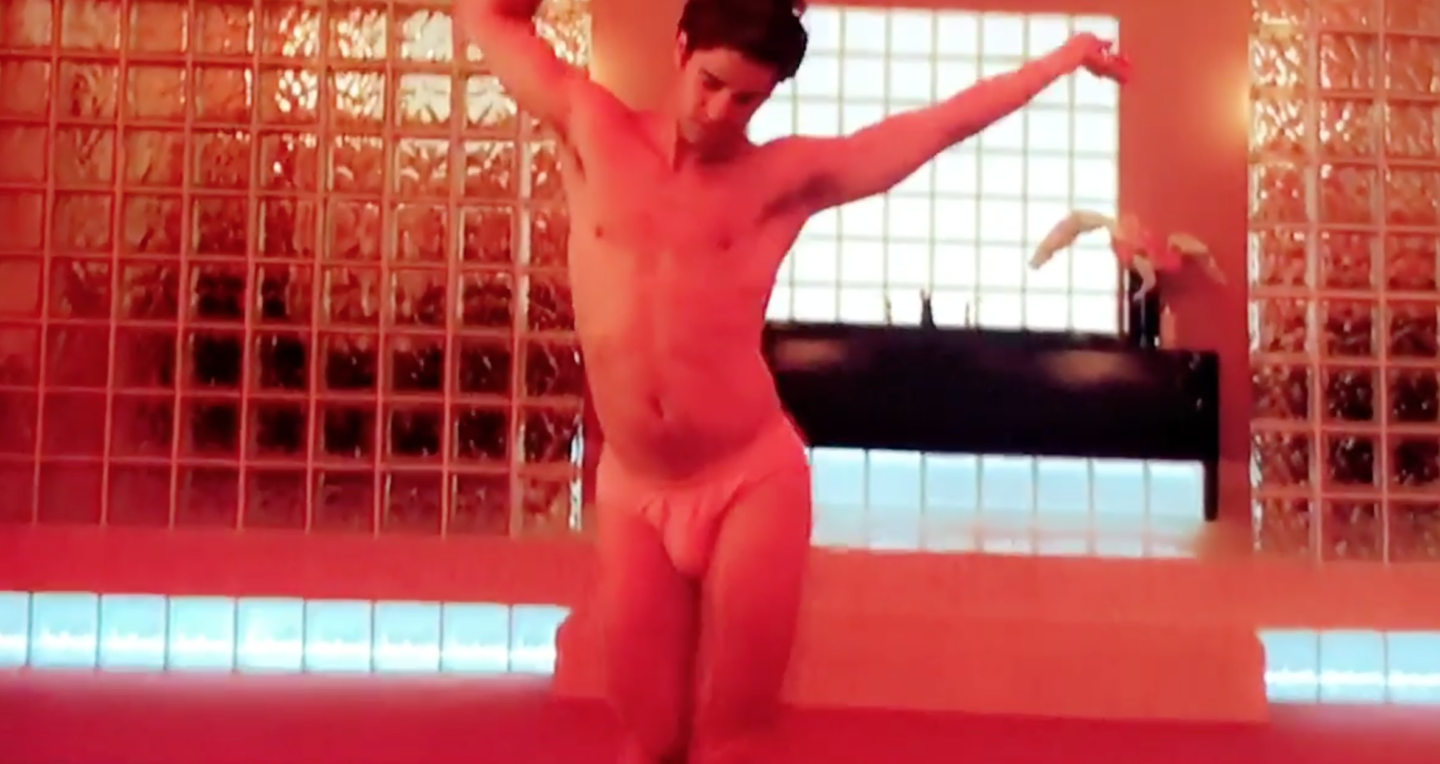As we enter further into the psychotic, drug-addled brain of Andrew Cunanan with each new episode of The Assassination of Gianni Versace, one can’t help but find some rather overt parallels between the man of many masks and the ultimate authority on masks (both metaphorical and skin care-related), Patrick Bateman. The second segment in the eight-part series, “Manhunt,” flashes back and forth between the week leading up to Versace’s killing, as well as giving us some insight into Versace’s near brush with death in early 1994 as a result of being HIV positive–though at the time, it was billed as ear cancer, and, to this day, Donatella maintains that’s all it was.
Of course, one can’t have engaged in the type of high-risk sexual behavior that Versace and boyfriend Antonio D’Amico did without the high plausibility of contracting the still rampant disease. In what turned out to be many yin and yang foils between Cunanan and Versace, Cunanan was not HIV positive at the time of his death, had so much more technical reason to go on living his healthy life than Versace, a person who celebrated the beauty of existence and all of its details to the very end. An aesthetic man whose designs were rooted in joyousness, his fights with Donatella about shaking up the brand were legendary. This element is also explored in “Manhunt,” in a scene of Versace at the final fashion show in Paris he would put on before his assassination. With Donatella insisting that he open himself up to some of the popular trends of the moment (what with everyone taking more notice of Galliano and McQueen at the time), Versace rebuffs her offering of models who look “ill”–as though they enjoy nothing about life, which they probably don’t.
Looming in the background of it all is Cunanan, biding his time at a shitty hotel that at least has an ocean view. As he continues his endless search for a drug fix, he hones in on HIV positive Ronnie (Max Greenfield), based on a real life person Maureen Orth featured in the biography the show is based on. And since most of the pleasure Cunanan derives from life is in telling elaborate lies to get people to trust and like him, Ronnie seems to be a perfectly adequate way to pass the time as he waits for his moment, casing Versace’s villa and taking a series of photos of it with a disposable camera (just one of many reasons to yearn for the 90s).
Keeping his predatory skills sharp, Ronnie accompanies Cunanan to the beach where he targets an older man he can hustle who then takes him back to his hotel room. It is in this disturbing, duct tape-filled scene that we are given the strongest echoes of Bateman, in the now iconic moments leading up to his murder of Paul Allen (Jared Leto) to the tune of Huey Lewis and the News’ “Hip To Be Square.” Similarly, Cunanan puts on Phil Collins’ “Easy Love” after wrapping the older man’s entire face in duct tape and then dancing about with stoically and controlled gleeful abandon. Bateman, too, has an appreciation of Collins, giving an entire spiel about how much better his solo work is from Genesis.

Each man’s tendency to calmly explain and/or dance to their squirming, terrified victim speaks to the fractured emotional mechanism in their brain. Sure, they’re aware of the abstraction of what pain is, but it’s become so dulled that their need to inflict it on others is, in turn, how they can finally experience some level of sentience. At one point, Bateman himself remarks, “My pain is constant and sharp, and I do not hope for a better world for anyone. In fact, I want my pain to be inflicted on others. I want no one to escape.” It’s as though Cunanan’s own monologues have been ripped from the very pages and frames of Bret Easton Ellis’ and Mary Harron’s character, respectively.
As Ronnie starts to suspect that Cunanan is deeply disturbed upon seeing him with duct tape put over his own face before taking a shower (David Hockney would approve), Ronnie asks, “What have you done?” Cunanan snaps, “Nothing. I’ve done nothing. My whole life I can honestly say I’ve done nothing.” It is this feeling of inadequacy in spite of having all the intelligence and talent (in his mind) to have done something great, to have reached the level of fame and respect that Versace has, that plagues him. And, desiring a release of that agony of being a cipher–like Bateman–he must kill. Music just happens to be an integral part of that sadism. That the show’s soundtrack has thus far been drenched in dance cuts of the time (even the late 80s club staple “Back to Life (However Do You Want Me)” by Soul II Soul) means we’re going to get even more ominous song associations with Cunanan (Laura Branigan’s “Gloria” is already definitely ruined).
Below is the much more sinister, in my opinion, “Cockiness (I Love It)” by Rihanna synced up to Darren Criss’ Golden Globes-worthy clip, followed by the original “Easy Love” by Phil Collins one. In both auditory cases, Patrick Bateman has some serious competition.





















